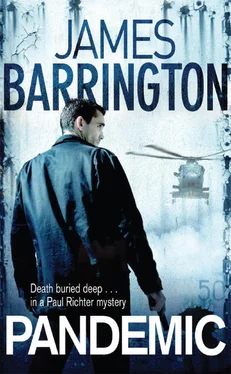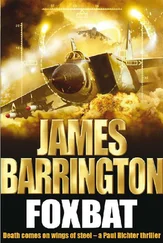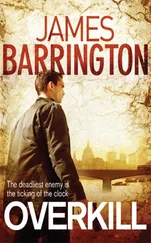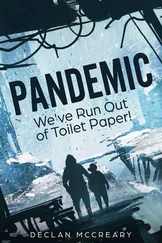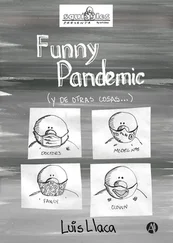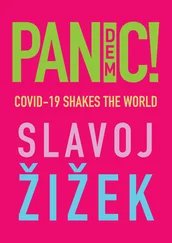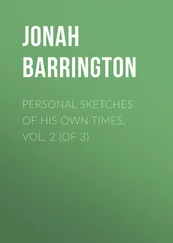How could he have got out of the Seat without being seen? Murphy knew he’d watched the car for at least two minutes after it had lurched to a stop, and then he’d put a bullet through the front of the vehicle; he could see both the entry and the exit holes.
Then Murphy remembered something. As the Seat had slid off the road onto the waste ground there had been a short period – just a very few seconds – when the dust swirling around it had almost blocked his view of the car through the Bushnell. It was possible, just barely possible, that the driver, this British agent, could have slipped out of the car through the passenger door.
This realization had come late to Murphy, though his assessment of what had happened was remarkably accurate. Unfortunately for him, it was too late for him to do anything about it.
He whirled round, suddenly conscious that he might have unwittingly made the transition from predator to prey. He swung the Daewoo up to face the threat that he was suddenly sure he was now facing, but he was too late. A lifetime too late.
The bullet from the SIG took Murphy in the right shoulder, spinning him round as the Daewoo clattered to the ground. As he fell back with a shout of pain, stumbling into the rear of the Seat, Murphy looked up at the figure standing ten feet in front of him, and met Richter’s ice-blue gaze.
‘What’s your name?’ Richter asked, his voice quiet and controlled.
‘Murphy. Mike Murphy.’ The response came through clenched teeth as the wounded man clutched at his shattered shoulder.
‘Well, Mike, here’s the bad news. Some of us in British Intelligence,’ Richter said, echoing Murphy’s remarks, ‘ don’t have scruples and don’t give a flying fuck for anybody’s rules. But what I don’t do is tell lies, so you’re getting the same two you doled out to Stein there.’
Richter altered his aim slightly and shot Murphy in the stomach. The assassin howled with pain and doubled up, falling to the ground. Richter stepped closer and ten seconds later Murphy fell silent permanently as Richter’s last bullet blew off the top of his head.
Saturday
South of Zounáki, western Crete
The Seat was useless to Richter. The car had three bullet holes in it – one through the boot lid, the others in the driver and passenger doors – and Murphy’s shot had not only punctured the right front tyre but also buckled the wheel rim and smashed the brake disc. It was now going to have to be hauled away behind a recovery truck.
But, Richter reasoned, Murphy hadn’t just been waiting around there on the road out of Zounáki on the mere off-chance that Stein would turn up there. Obviously he’d been following the Seat, which meant that there was another vehicle parked somewhere in the vicinity. He could hopefully use that to get back to Máleme.
But Richter needed to do a bit of a clean-up first, because he wanted to leave a satisfactorily tidy solution for the Cretan police to find. He first checked Stein’s body and found, as he had expected, that the bullet from the sniper rifle had gone straight through the American agent’s left thigh – Richter could clearly see the entry and exit points in the fabric of the trousers – and vanished into the scrubland beyond.
The other injuries had all been caused by Murphy’s Daewoo pistol, and all the wounds on Murphy’s own corpse by the SIG that Stein had originally been carrying. The bullet holes in the Seat were simply that, and they would reveal little information about the weapon that had fired the bullets themselves. Richter’s rudimentary knowledge of ballistics reassured him that a round fired from a high-velocity rifle at long range would leave a hole similar to that from a larger but slower bullet shot at close range from a pistol.
Richter eyed critically the two bodies now lying beside the Seat. He then dragged Stein a little further back, and turned him round so that his feet were pointing towards his dead assassin. That looked better. With a little imagination it was easy to construe this scene as some kind of gunfight between the two men that had ended with both of their deaths.
It would take a lot more imagination to credit that both had managed to shoot each other in the stomach before simultaneously shooting each other in the head, but Richter believed that Fitzpatrick could probably use his influence to make sure it became the accepted account. That way, the open files on the killings of a policeman and two villagers in Kandíra, of the diver near the island of Gávdos, and a man calling himself Curtis in the hospital in Chaniá, could all be closed.
Richter was still wearing the thin rubber gloves he’d donned before approaching Stein in the car park at Máleme, so was reasonably certain that he’d left few traces in the Seat. He placed the Daewoo by Murphy’s side, then stepped across to the other corpse. He wrapped Stein’s right hand around the butt of the SIG, pointed the pistol into the sky and pulled the trigger. The weapon coughed and recoiled. A paraffin test, if anybody bothered to carry one out, would now show that both men had fired weapons shortly before they died.
He checked Murphy’s pockets, found a set of car keys as expected, and the magazine from the Dragunov, which he hadn’t anticipated. Richter put both of these in his jacket pocket, lifted the briefcase from the passenger seat and the black-wrapped steel case out of the boot of the Seat, and set off down the hill.
A few minutes later he locked both items safely in the boot of the Peugeot he’d found parked a quarter of a mile away, and began climbing up the hill to the north of the parked vehicle, looking for a sniper rifle. When he discovered it, Richter whistled softly. It was a long time since he’d seen that particular model. For a few moments he wondered what to do with it, then shrugged, tossed the magazine down beside it and headed back down the hill. He’d let some Cretan local find it and add it to his private armoury.
Central Intelligence Agency Headquarters, Langley, Virginia
Just after nine, Henry Rawlins knocked on the door of John Westwood’s office and slumped down, uninvited, in a leather chair in front of his desk.
Westwood watched him quizzically. The CIA Director of Personnel was a most infrequent visitor to his domain: in fact, as far as Westwood could recall, Rawlins had never before even been in his office. When they met at all, it was usually at high-level meetings and conferences elsewhere, or over meals in the super-grades’ dining room at Langley.
‘Good morning, Henry,’ Westwood said. ‘Unusual to find you defending democracy on a weekend.’
Rawlins smiled thinly. ‘I’m not absolutely sure that’s what the CIA is doing, and I personally don’t get involved if I can avoid it. I generally leave that to you full-time warriors.’
‘So what’s special about this Saturday, Henry?’
Rawlins smiled again, but didn’t answer the question. ‘I hear you’ve been running checks on some pretty senior guys, John,’ he said, and Westwood nodded. ‘What’s it all about?’
‘Right now, Henry,’ Westwood replied, ‘I’m not really sure. What I do know is that the Company was involved in some kind of deep black operation back in the seventies, somewhere in the Mediterranean region. A short time ago a Greek diver found a crashed Learjet near the coast of Crete. What research I’ve been able to do has demonstrated a definite link between that same deep black op and the crashed jet. The moment the news of the Lear’s discovery hit the press, somebody here in America began eliminating every CIA agent who’d originally been involved in that operation. He killed three former agents, all long retired.’
Читать дальше
